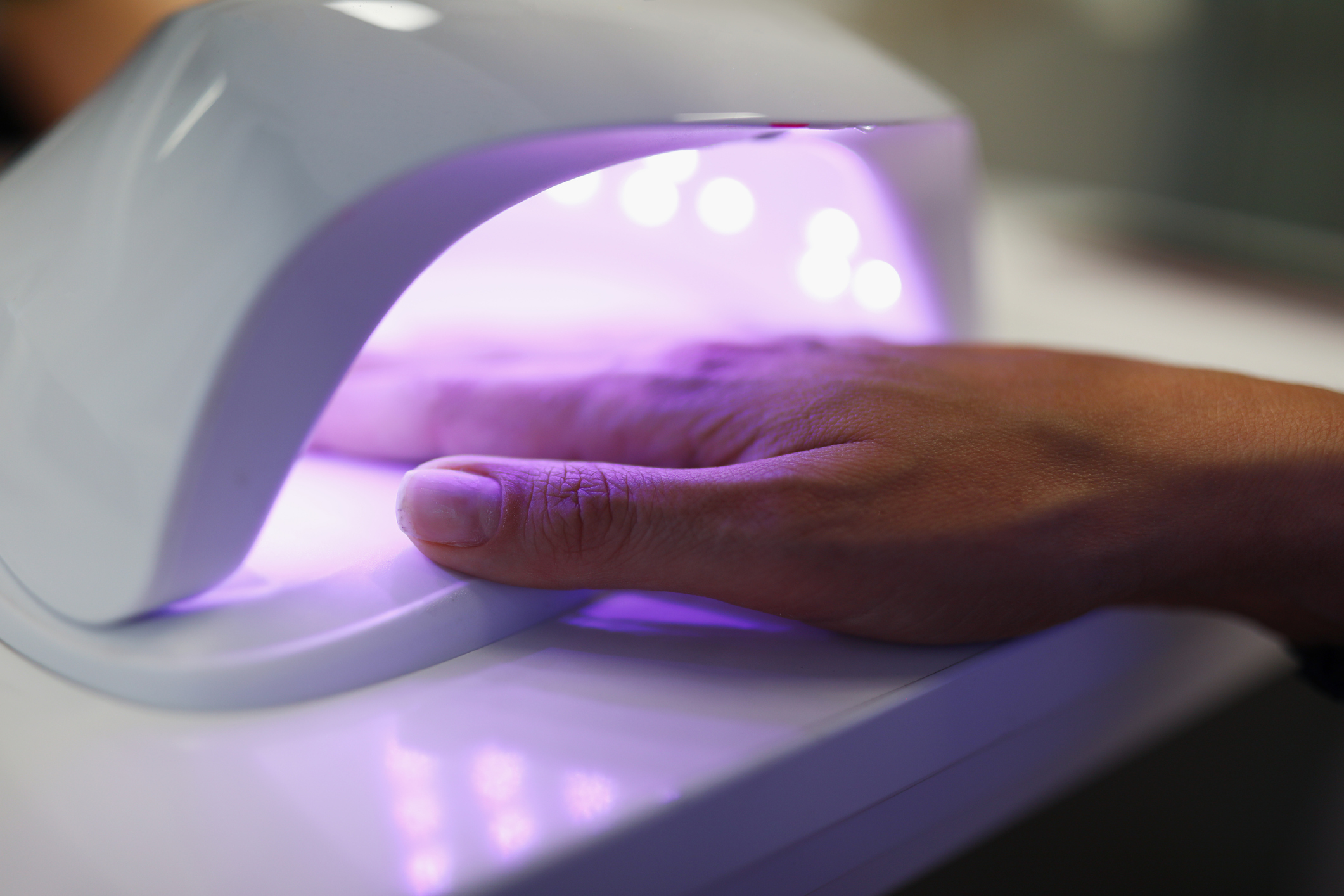Get Easy Health Digest™ in your inbox and don’t miss a thing when you subscribe today. Plus, get the free bonus report, Mother Nature’s Tips, Tricks and Remedies for Cholesterol, Blood Pressure & Blood Sugar as my way of saying welcome to the community!
Popular manicure may increase risk for skin cancer

Before you head off to the salon to have your nails done, there’s something you should know: gel manicures keep your fingernails looking polished and beautiful is exposing you to a very real danger…
Experts contend that the radiation emitted by the UV light used in nail dryers to set that long-lasting polish can result in cancer-causing mutations similar to levels from sun exposure and tanning beds.
Nail lamps and skin cancer
It’s no secret that UV rays can cause skin cancer. In fact, UVA rays (315 to 400 nanometers) from the sun penetrate the skin more deeply. It’s why we slather on sunscreen before hitting the beach. And it’s why we’ve all been told to skip those tanning beds, which emit UVA rays of 280 to 400 nanometers.
But you’ve probably never been concerned about the light inside those nail dryers.
Well, dermatologists are… with good reason: they expose your fingers to anywhere from 340 to 395 nanometers of UV light.
According to a report by CNN, some dermatologists either skip gel manicures altogether due to concerns about the damage done by UV nail lamps — or, at the least, they alter the way they get those manicures.
“If you look at the way these devices are presented, they are marketed as safe, with nothing to be concerned about,” said Ludmil Alexandrov of the University of Utah. “But to the best of our knowledge, no one has actually studied these devices and how they affect human cells at the molecular and cellular levels until now.”
So he and his research team set out to do just that. They exposed cells from humans and mice to UV light of nail lamps and made a very concerning discovery: a single 20-minute session resulted in 20 to 30 percent of those cells dying.
Sounds bad, right?
Well, hold onto your hat because when three consecutive 20-minute sessions were completed, a whopping 65 to 70 of the exposed cells died.
And the rest of the cells certainly didn’t get off Scot-free. They underwent mitochondrial and DNA damage that resulted in the same type of mutations that are associated with skin cancer in humans.
Protection before beauty
So does that mean to avoid skin cancer, you also have to skip the manicures?
Well, not necessarily.
Perhaps the easiest way to reduce your risk is to simply switch from gel to regular manicure to avoid those UV dryers.
And, Dr. Julia Curtis, an assistant professor of dermatology at the University of Utah has additional recommendations…
“Apply broad-spectrum sunblock that contains zinc and titanium around the nails, and wear UV gloves with the fingertips cut off when it is time to cure your nails,” said Curtis. “I would recommend alternatives to gel nails, such as the new wraps that are available online.”
Additional advice I can offer to add an extra layer of protection against any UV exposure is to take vitamin D regularly. A Finnish study found fewer cases of melanoma among those who regularly supplemented vitamin D than among non-users — and their future risk was way lower too.
Studies have also found that eating grapes protected against UV skin damage, increased resistance to sunburn and reduced cellular markers of UV damage.
If you’ve been getting gel manicures regularly, be sure to check with your dermatologist who can examine your skin for any changes that could signal skin cancer problems in the future and treat them before they become dangerous.
Editor’s note: Are you feeling unusually tired? You may think this is normal aging, but the problem could be your master hormone. When it’s not working, your risk of age-related diseases skyrockets. To reset what many call “the trigger for all disease” and live better, longer, click here to discover The Insulin Factor: How to Repair Your Body’s Master Controller and Conquer Chronic Disease!
Sources:
A common nail salon tool may cause DNA damage and mutations in human cells, research finds – CNN Health












